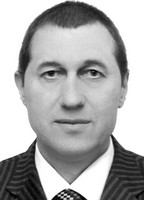Axiological grounds for individualized academic physical education process
Фотографии:
ˑ:
Teoriya i praktika fizicheskoy kultury №11 2017, pp.42-44
PhD, Professor S.I. Belykh
Donetsk National University, Donetsk
The study gives substantiations for the values-driven reform model applicable to the academic Physical Education discipline and specifies the following key groups of criteria for the academic physical education process redesign initiatives: objective (i.e. the social requirements) and subjective (individual) needs for different forms of physical activity. The study demonstrated the need for every physical education form to be supported by the relevant theory, design concept, goals, models, tools and methods, with its connections with the other forms being specified.
The physical development and health standards of university students have been on decline and raised concerns for the last few decades, with the growing numbers of students qualified with special health groups. The study data shows that due individual physical culture needs to be formed so as the biological, social, physical (motor) and spiritual (intellectual) dimensions of the human nature are duly unified and harmonised; and demonstrates that axiological grounds may be effectively applied for the individualised academic physical education process design.
Keywords: physical education values, student’s personality, individualized academic physical education.
References
- Bal’sevich V.K., Popov G.I., Sannikova N.I. Nepreryvnoe fizkulturnoe obrazovanie [Continuous physical education]. Teoriya i praktika fiz. Kultury, 2004, no 12, pp. 10-13.
- Belykh S.I. Mesto aksiologicheskogo podkhoda v lichnostno orientirovannom fizicheskom vospitanii studentov [Place of axiological approach in personality-centered physical education of students]. VISNIK Luganskogo natsIonalnogo unIversitetu ImenI Tarasa Shevchenka (pedagogIchnI nauki), 2013, no. 10 (269), pp. 81-93.
- Vilenskiy M.Y. Student kak sub'ekt fizicheskoy kultury [Student as a subject of physical culture]. Teoriya i praktika fiz. kultury, 1999, no. 10, pp.23-27.
- Gershunskiy B.S. Filosofiya obrazovaniya dlya XXI veka (v poiskakh praktiko-orientirovannykh obrazovatelnykh kontseptsiy) [Philosophy of education for the 21st century (in search of practical-oriented educational concepts)]. Moscow: Sovershenstvo publ., 1998, 608 p.
- Gostev R.G.Osnovnye napravleniya razvitiya fizicheskoy kultury i sporta v vuzah Rossii v nachale XXI veka [Key directions of development of physical culture and sports in Russian universities in the early 21st century]. Mater. 1-y nauch.-prakt. konf. TsChR Rossii “Fizicheskaya kultura molodezhi v XXI veke” [Proc. 1st res.-pract. conf. CBER of Russia “Physical culture of youth in the XXI century”], Voronezh: VSU publ., 2001, pp. 127-134.
- Zagvyazinskiy V.I. Fizicheskaya kultura v sisteme otechestvennogo obrazovaniya [Physical culture in domestic education system] Teoriya i praktika fiz. kultury, 2005, no. 8, pp. 59-61.
- Kurys V.N., Slyadneva L.N. Vzglyady na obschee nepreryvnoe obrazovanie v oblasti fizicheskoy kultury v prostranstve pedagogicheskoy antropologii [Views on general continuous physical culture education within pedagogical anthropology]. Teoriya i praktika fiz. kultury, 2004, no. 12, pp. 14-19.
- Kurys V.N., Slyadneva L.N. Fizicheskaya kultura kak obscheobrazovatelnyiy uchebny predmet [Physical culture as general educational subject]. Teoriya i praktika fiz. kultury, 2002, no. 9, pp. 57-60.
- Lubysheva L.I. Kontseptsiya formirovaniya fizicheskoy kultury cheloveka [Individual physical culture building concept]. Moscow: GTsOLIFK publ., 1996, 40 p.
- Lubysheva L.I. Sovremenny tsennostny potentsial fizicheskoy kultury i sporta i puti ego osvoeniya obschestvom i lichnostyu [Modern value potential of physical culture and sports and ways of its social and individual development]. Teoriya i praktika fiz. kultury, 1997, no. 6, pp. 6-12.
- Pleshakov A.N., Lotonenko A.V. Potrebnost v fizicheskoy kulture kak oblasti deyatelnosti [Need for physical culture as field of activity]. Teoriya i praktika fiz. kultury, 2002, no. 5, P. 23.
- Suleymanov I.I. Osnovnye ponyatiya teorii fizicheskoy kultury: ikh suschnost i sootnoshenie [Basic concepts of theory of physical culture: essence and correlation]. Teoriya i praktika fiz. kultury, 2001, no. 3, pp. 12-16.



 Журнал "THEORY AND PRACTICE
Журнал "THEORY AND PRACTICE